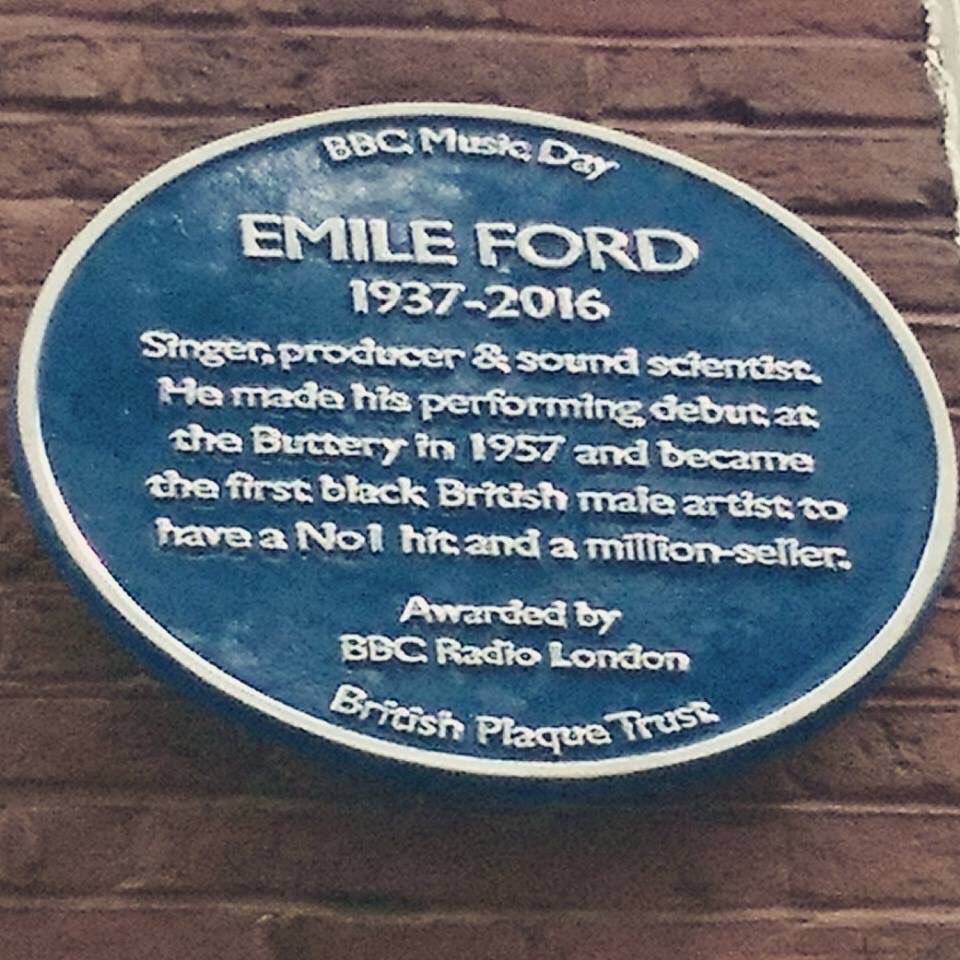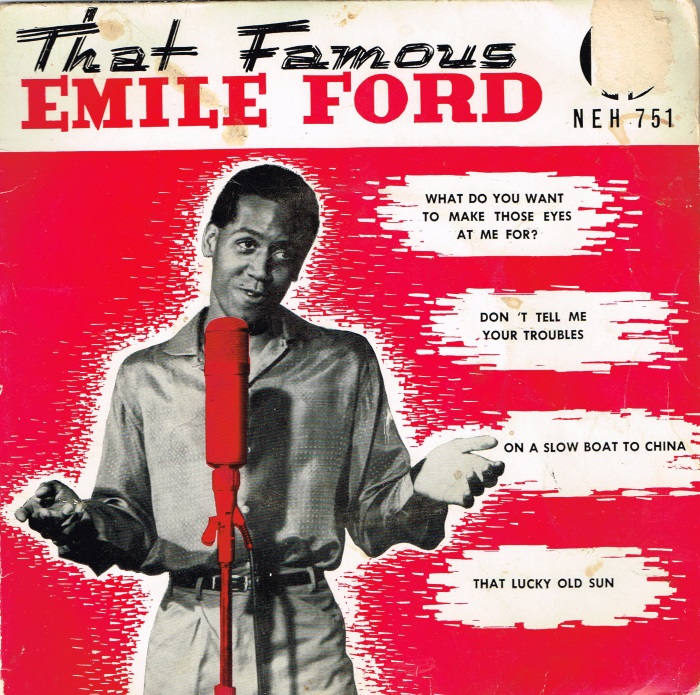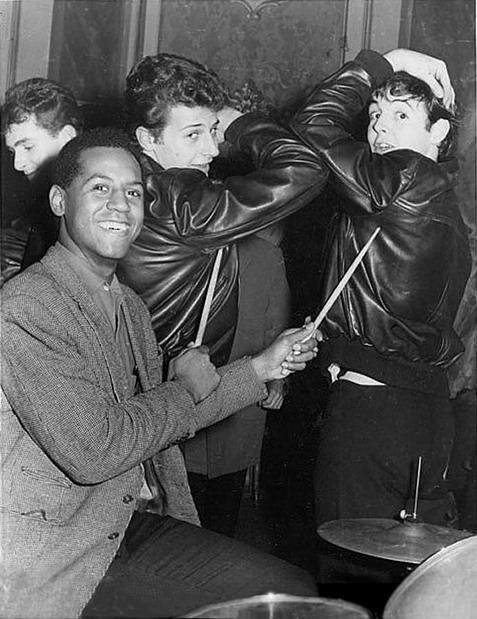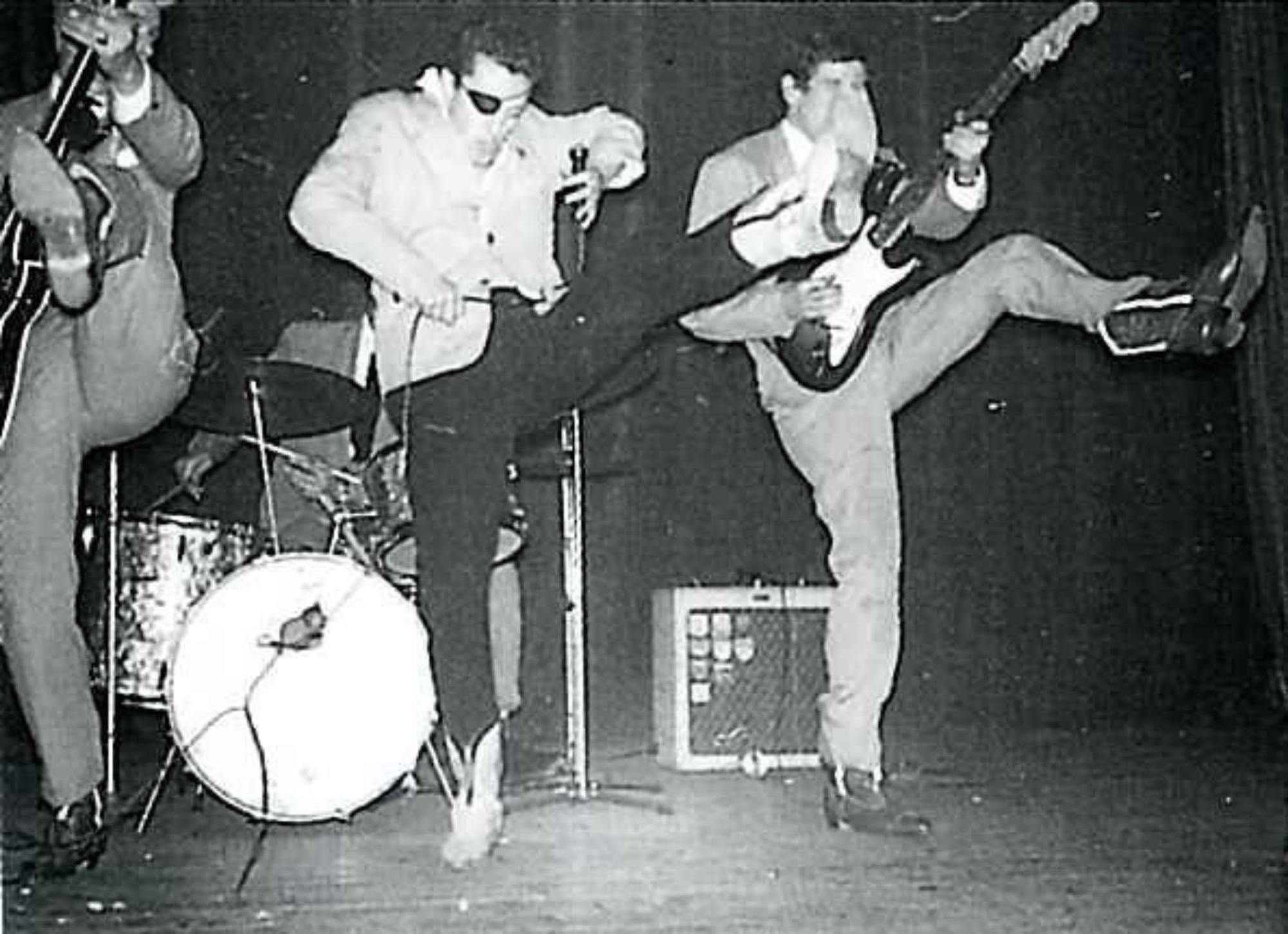Michael Emile Telford Miller (1937 – 2016) was born in Saint Lucia, West Indies. Son of a politician father and soprano mother, he moved to London in the mid 50’s with his mother and two sisters.
He had a fascination for sound and technology, studying engineering at college and teaching himself how to play numerous instruments including guitar, piano, violin, bass guitar and drums.
In 1957, aged 20, he entered show business under the name ‘Emile Ford’ and formed a group which had some TV appearances.

In 1959 he invited two half-brothers to help form a backing group and became ‘Emile Ford and the Checkmates’, they won a talent contest and a contract with EMI but he turned it down as the label wouldn’t let him produce his own records. Instead he agreed with Pye records who released his debut ‘What Do You Want To Make Those Eyes At Me for?’ which the label switched from the ‘B’ side in place of ‘Don’t Tell Me Your Troubles.’

The song replaced the similar sounding ‘What Do You Want?’ by Adam Faith at No.1 and was the last chart-topper of the 50’s and the first of the 60’s. It spent six weeks at the top (3 in each decade) and helped Emile win the ‘best new act’ award for 1960 by the NME.
The song was a doo-wop cover version from 1916 and was followed by more hits and several albums. He had two other top 10 charting singles – ‘On a Slow Boat to China’ (No.3, 1960) and ‘Counting Teardrops’ (No.4, 1961) with his last studio recordings in 1963.

Always travelling with his own PA system which he set up himself at each venue, his skill as an engineer saw him develop a backing track system for live shows which eventually evolved into what is now known as karaoke.
Regular tours saw the group touring with acts such as Bobby Darin, Everly Brothers, Shadows and Duane Eddy.
He eventually quit performing to return to his love of electronics, holding titles such as ‘acoustics manager’ and ‘sound scientist’, eventually running his own recording studio.

